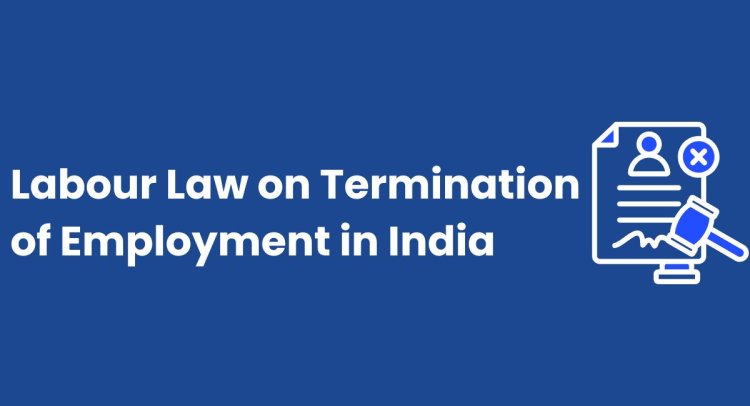Losing a job is never easy, and firing someone is no easier. In India, the law steps in to make sure termination of employment is not arbitrary. Labour laws define how and when an employer can end a worker’s contract, what notice must be given, and what compensation is due. For employees, this means protection. For employers, it means compliance.
Legal Framework for Termination in India
India doesn’t have a single law that covers every detail of termination. Instead, different acts and codes apply depending on the type of employment and size of the company.
-
Industrial Disputes Act, 1947: Governs retrenchment, layoffs, and disputes for workmen in factories and certain establishments.
-
Shops and Establishments Acts: Each state has its own version, covering offices, IT companies, and retail businesses. These acts often set rules for notice and working conditions.
-
Labour Codes of 2020: Once implemented, the Industrial Relations Code will replace older provisions, but as of 2025, companies still follow older acts.
-
Employment Contracts: The terms you sign with your employer also matter. Courts look at them when disputes arise.
Types of Termination
Voluntary Termination
When an employee resigns, they usually serve a notice period as defined by contract or law. If both sides agree, the notice can be waived.
Termination by Employer
-
With cause: Misconduct, fraud, insubordination, or performance issues. In such cases, employers may terminate without notice, but proof and due process are necessary.
-
Without cause (retrenchment): Companies may reduce staff due to business needs, but must follow notice and compensation rules under labour laws.
Contract Expiry
Fixed-term employees can be let go once the contract ends, unless the contract says otherwise.
Notice Period Rules
-
Shops and Establishments Acts: Most states require 30 days’ notice for employees who have worked at least a year. Some allow wages in lieu of notice.
-
Industrial Disputes Act: Requires one month’s notice for retrenchment if the employee has worked more than a year, along with retrenchment compensation.
-
For misconduct: No notice is needed, but a fair inquiry must be conducted.
Severance and Compensation
-
Retrenchment benefits: Under the Industrial Disputes Act, employees with one year or more of service are entitled to 15 days’ average pay for each completed year.
-
Gratuity: Payable if the employee has completed five years of continuous service.
-
Unpaid wages and leave encashment: Must be cleared in the full-and-final settlement.
-
New Codes: Once implemented, the Industrial Relations Code will largely continue these provisions, with added clarity.
Wrongful Termination
Termination is considered wrongful if it:
-
Violates contract terms.
-
Lacks proper notice or compensation.
-
Is discriminatory or retaliatory.
Employees can approach labour courts or file complaints with labour commissioners. Courts often order reinstatement or compensation if the dismissal is illegal.
Termination in Special Sectors
IT and Startups
These fall under state Shops and Establishments Acts. While they often use contracts with long notice periods (90 days is common), the Acts still apply.
Contract Workers
Covered under the Contract Labour Act. If employed through contractors, the principal employer may still hold responsibility for benefits.
Fixed-term Employees
Their contracts end automatically, but they are entitled to gratuity if they serve five years, even under fixed-term arrangements.
Compliance Tips for Employers
-
Put termination rules clearly in contracts.
-
Maintain documentation of performance and disciplinary records.
-
Conduct domestic inquiries before firing for misconduct.
-
Clear dues within the legally defined period, usually 30 to 45 days.
FAQs
Q1. Can an employer fire without notice?
Yes, but only in cases of serious misconduct proven through inquiry.
Q2. What is the minimum notice period in India?
Generally 30 days under Shops and Establishments Acts, but contracts may set longer periods.
Q3. Do probationers have rights?
Yes. Even probationers cannot be dismissed without cause, though shorter notice periods often apply.
Q4. What if a company refuses full-and-final settlement?
Employees can file a complaint with the labour commissioner or move to labour court.
Q5. Can employees challenge termination in court?
Yes. If laws or contracts are violated, employees can seek reinstatement or damages.
Conclusion
Termination of employment in India is guided by a mix of central laws, state laws, and employment contracts. For employees, knowing the rules ensures protection against unfair dismissal. For employers, following due process avoids legal trouble. A clean exit matters for both sides.






